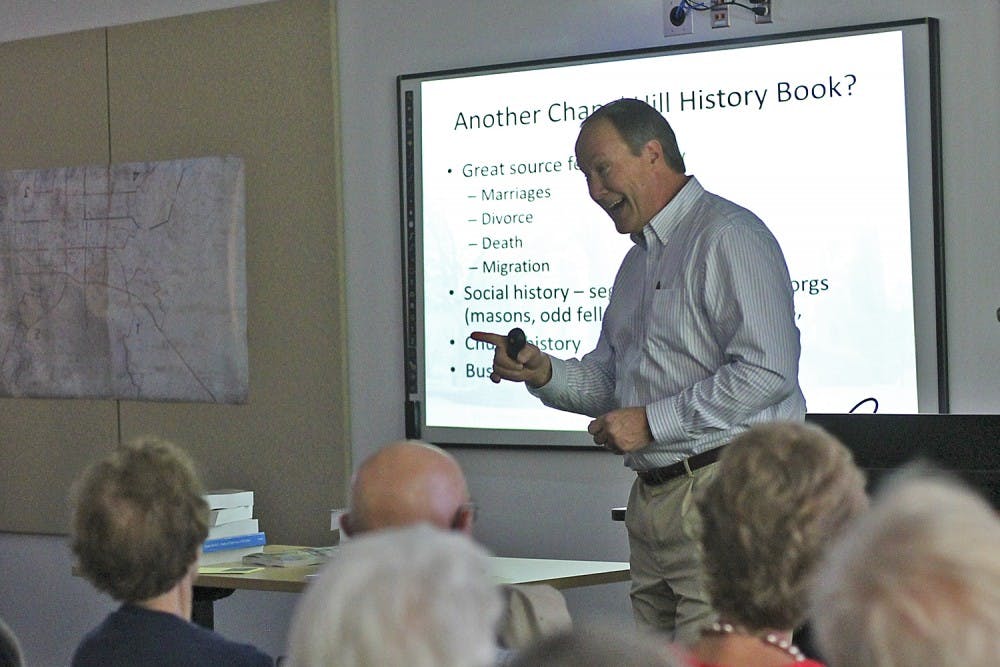After an extensive study of the history of town deeds, there is no verifiable record of a church that existed when the town was created, historian Stewart Dunaway told a crowd of more than 50 at the Chapel Hill Public Library on Sunday afternoon.
“It was assumed to be near or under the Carolina Inn, but no archeological work has ever been conducted in the assumed location,” said Dunaway, who gave a presentation at the event, which was organized by the Chapel Hill Historical Society.
Over the past 10 years, Dunaway has chronicled more than 48,000 pages of records for every county in North Carolina dating back to the Revolutionary War. He documented the history of the property records in Chapel Hill in his book “Chapel Hill, NC: History of Town Lots (1790-1930s),” which was published in November.
“I’m reporting the records of deeds,” Dunaway said. “But when you trudge through 3,000-plus pages of records, you can’t help but run into historical facts.”
Dunaway’s research explored the history of every Chapel Hill lot sold to build and operate the University.
The book focuses on the oldest and most interesting lots with the purpose of explaining how the town was planned and how it expanded.
In addition to the ambiguity of the chapel in Chapel Hill, Dunaway said he found the original boundaries of the town. The town was originally exclusively a campus, created after wealthy men donated 788 acres for the construction of a university.
UNC pre-dates the town by 30 years, Dunaway said.



